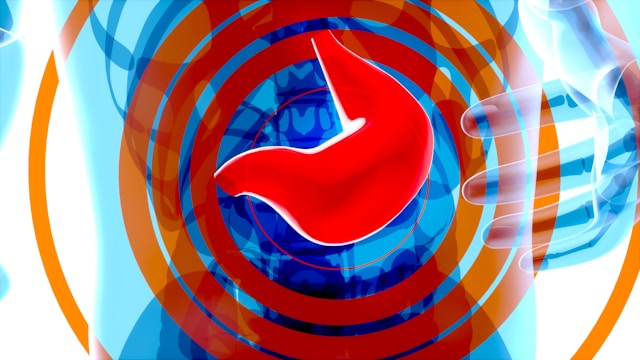What is Alcohol-Related Dementia?
Alcohol-induced neurocognitive disorder or alcohol-related dementia is a form of dementia brought on by prolonged (long-term) and excessive alcohol use. This excessive use of alcohol damages the brain and impairs cognitive function. Dementia can be described as a condition marked by a chronic or degenerative decline in cognitive function (especially memory and thinking functions). This cognitive decline often goes beyond what might be anticipated from the typical effects of biological aging.
Alcohol-related dementia impairs memory and other cognitive abilities and is marked by memory disorders, personality changes, and impaired reasoning.
Causes Of Alcoholic Dementia
Moderate alcohol use has not been linked to dementia or other cognitive impairments. However, excessive alcohol use and abuse, especially in old age, have been linked to structural changes in the brain that increase the risk of dementia.
While dietary deficiencies, eating disorders, and other lifestyle factors can all play a role in dementia. Alcoholism has been linked to a rare type of dementia known as Korsakoff syndrome. This syndrome appears when individuals are deficient in thiamine/vitamin B1, a common deficiency in chronic alcoholics.
Recent evidence suggests that non-moderate alcohol use may significantly contribute to the onset of early-onset dementia. This deduction is according to a large-scale study done between 2008 and 2013 on more than 30 million French hospital patients. Clinicians identified most dementia cases among those 64 and younger in patients who had previously been diagnosed with an alcohol use disorder (AUD), according to this study.
A 2018 study looking into the possible link between alcohol consumption and dementia discovered that non-moderate alcohol consumption is associated with a higher risk of cardiometabolic disease. These cardiometabolic conditions are associated with a higher risk of dementia, implying that these diseases may play a role in the link between alcohol consumption and dementia.
Alternatively, a different study shows a high prevalence of alcohol misuse (9% to 22%) in dementia patients and a high rate of dementia in people who drink (10% to 24%). Furthermore, men and women who consume 35 and 28 alcoholic drinks per week are at risk of developing alcohol-related dementia within five years.
How Common is Dementia
Various estimates have been made, but according to experts, more than 7 million Americans aged 65 or older had dementia in 2020. Comparatively, more than 9 million Americans could have dementia by 2030 and nearly 12 million by 2040 if demographic and health trends continue.
Alcoholic Dementia: Signs & Symptoms
Since alcohol-related dementia is a degenerative condition, its symptoms frequently develop gradually and worsen over time, especially if untreated.
Wernicke-Korsakoff syndrome, a type of dementia brought on by a lack of vitamin B1, or thiamine, is commonly seen in heavy drinkers and is a significant sign of alcohol-related dementia in individuals. Confusion, visual disturbances, or exaggerated storytelling are some of the symptoms of Wernicke-Korsakoff syndrome. This syndrome comprises two disorders (Wernicke’s encephalopathy and Korsakoff syndrome), which can occur separately or together in an individual.
While the many signs and symptoms of alcohol-related dementia vary from person to person, they typically include the following:
- Loss of executive and planning abilities.
- Inability to carry out complex motor tasks (e.g., getting dressed).
- Speech impairment.
- Unexplained personality changes.
- Confusion and difficulty thinking clearly or logically.
- Reduced capacity to learn new things.
- Memory issues and trouble processing new information.
- Difficulties with balance.
- Lower levels of initiative and spontaneity.
- Depression and irritability
- Paranoia and hallucinations
- Disregard for the consequences of actions.
How Is Alcohol Related Dementia Diagnosed?
Like many other disorders, alcohol related dementia is a complex condition likely influenced by neurotoxicity and thiamine deficiency. According to the Diagnostic and Statistical Manual of Mental Disorders (DSM), a person could be diagnosed with alcohol-related dementia if their memory, thinking, or reasoning are significantly impaired due to alcohol misuse.
A doctor typically asks patients to complete a paper-based test to check for memory and thinking issues. A doctor will also question the patient to determine whether there are any problems with daily functioning during an ARD diagnosis.
To ascertain whether a patient’s health status is consistent with the effects of alcohol abuse and to rule out another type of dementia, such as Alzheimer’s disease. Clinicians will take a medical history, lab tests will be conducted, and a physical examination will also be performed. Ultimately, multiple cognitive deficits in a patient usually indicate alcohol-related dementia, especially if the patient has a history of alcohol misuse.
Treatment Options For ARD
Alcohol-related dementia is a consequence of long-term alcohol abuse. As a result, abstaining from alcohol (undergoing alcohol detoxification) is the first step in treatment, as it will prevent further brain damage. Many alcohol detox programs are completed in five to seven days.
Even in the most severe cases, patients will almost always complete physical detoxification in less than 14 days.
The best strategy for quitting alcohol is to seek out professional assistance. Many people hold the false belief that they can stop drinking by themselves. Although this is possible, it often can lead to harmful effects due to mismanagement of alcohol use withdrawal symptoms. Professional assistance is required throughout an addiction treatment program. Alcohol detoxification alone can be extremely dangerous as withdrawal symptoms can be hard to manage independently.
Studies have shown that those who stop drinking can partially reverse their cognitive decline, and abstinence for up to a year is associated with improved attention and executive function. Additionally, early detection of alcohol-related dementia is likely to result in improvements for those who are affected, especially when dietary modifications are also made. Vitamin B1 supplementation, in some instances, reduces the adverse effects of nutritional deficiency caused by alcohol misuse.
Call Lakeview Health
At Lakeview Health, we know that it’s not an easy decision to reach out for help. We’re proud of you for researching the long term effects of alcohol abuse, including alcoholic dementia. You may be seeing a course that you don’t want your life to take. No matter how far gone you or your loved one may be, we believe in your ability to get your life back on track. Recovery is possible, and it’s up to you to take the first step.
If you’re ready to make the change, call Lakeview Health at 866 704 7692. Our caring admissions staff will give you more information on our programs, helping you decide if what we offer is a good fit for your needs. There’s no pressure – just information to help you make decisions about your future. Recovery is possible, and we can help. Don’t waste one more day living a life that’s anything less than what you want for your future.




